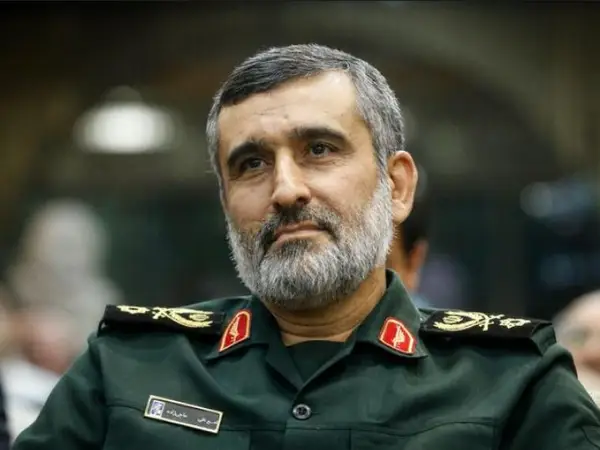Iran has developed a cruise missile with a range of 1,650 km a top IRGC commander claimed Friday, as he threatened to kill former US President Donald Trump.
Separately, Amirali Hajizadeh, the head of the Revolutionary Guards aerospace force, also spoke of Iran's often repeated threat to avenge the US killing of Qassem Soleimani, Tehran’s top military and intelligence operator in the Middle East, saying "We are looking to kill (former US President Donald) Trump."
The IRGC’s provocative statements come at a time when Western powers are imposing new sanctions on the Islamic Republic and Iran’s economy is in a downward spiral.
On Saturday, the currency, rial, hit another all-time low of 565,000 against the US dollar, an almost 100-percent depreciation since September when nuclear talks with the United States, United Kingdom, France and Germany reached a deadlock.
"Our cruise missile with a range of 1,650 km has been added to the missile arsenal of the Islamic Republic of Iran," Hajizadeh, told state TV.
The television broadcast what it said was the first footage showing the new Paveh cruise missile.
The four Western powers have adopted a tougher stance against Tehran since Russia started to use Iranian-supplied kamikaze drones against Ukraine in early October. At the same time, the Islamic Republic’s bloody crackdown on popular protests and the killing of more than 500 civilians raised outrage in Europe and North America.
Hajizadeh said Iran did not intend to kill "poor soldiers" when it launched a ballistic missile attack on US-led forces in Iraq days after Iranian military commander Soleimani was killed in a US drone strike on January 3, 2020 in Baghdad.
"God willing, we are looking to kill Trump. (Former Secretary of State Mike) Pompeo ... and military commanders who issued the order (to kill Soleimani) should be killed," Hajizadeh said in the television interview.
Iranian leaders have often vowed to avenge Soleimani in strong terms.
Iran has expanded its missile program, particularly its ballistic missiles, in defiance of opposition from the United States and expressions of concern by European and regional countries. Tehran says the program is purely defensive and of a deterrent nature.
At the same time, the spokesman of Iran’s foreign ministry, Nasser Kanaani told Russia’s Sputnik website that Tehran is ready to resume the nuclear talks. He also claimed that whatever weapons it supplied Russia were before the war in Ukraine – a claim previously made by the foreign minister.
Iran has said it had supplied Moscow with drones before the war in Ukraine. Russia has used the drones to target power stations and civilian infrastructure. But multiple reports point to continues supply of drones, and Western powers have voiced concern of Iran supplying missiles to Russia, which has used most of its precision, long-range arsenal.
In November, the Pentagon said the United States was skeptical of reports quoting Hajizadeh as saying Iran had developed a hypersonic ballistic missile.
Iranian officials often make exaggerated claims about their military and intelligence prowess that cannot be verified independently.
